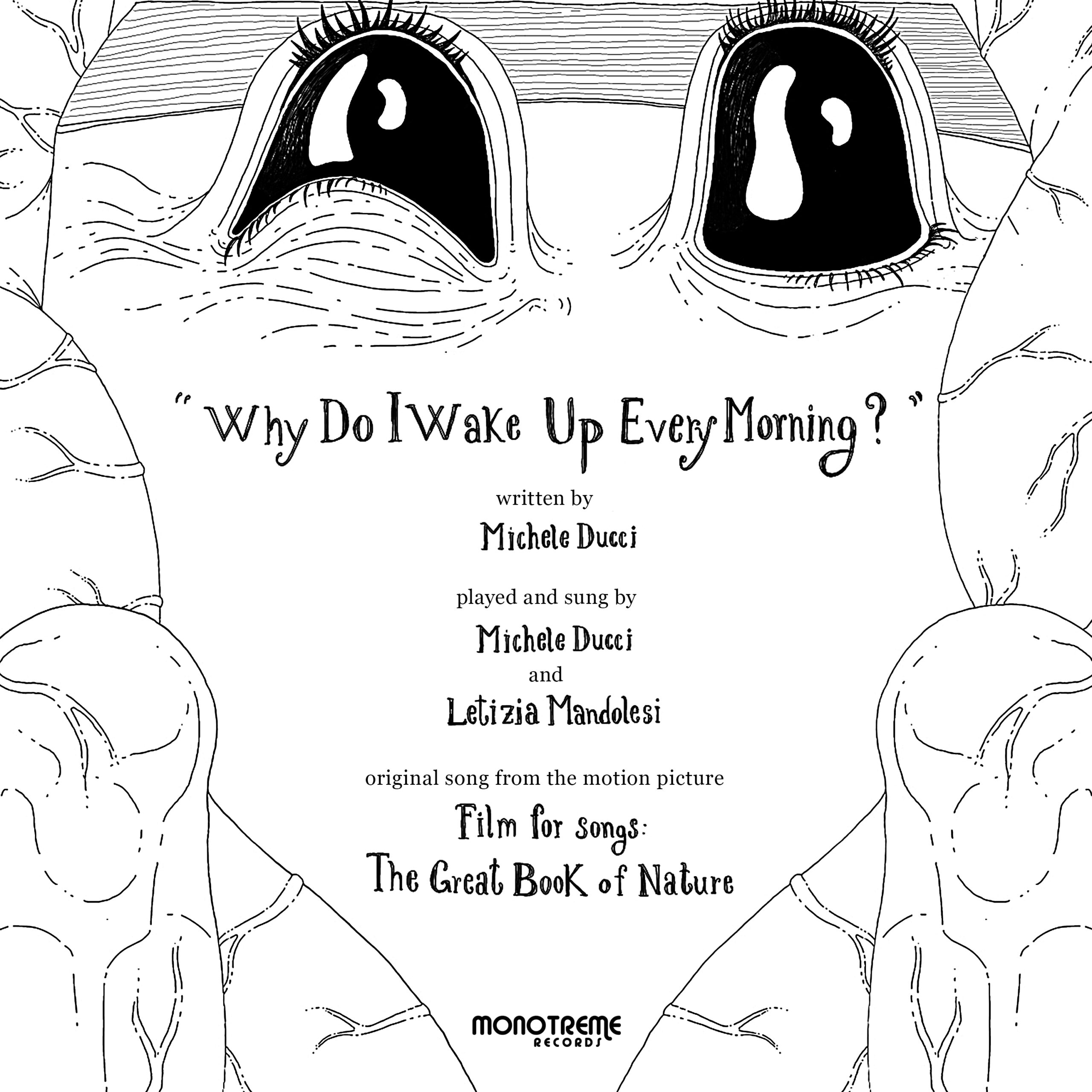We Speak Music
Michele Ducci releases ‘Why Do I Wake Up Every Morning?’ and first part of animated short film ‘Film for Songs: The Great Book of Nature’

‘Why Do I Wake Up Every Morning?’ is the first part of ‘Film for Songs: The Great Book of Nature’, an animated short film by Michele Ducci and Letizia Mandolesi. The film, which contains two new songs, ‘Why Do I Wake Up Every Morning?’ and ‘Why You?’, tells the adventurous story of an animated book called ‘The Great Book of Nature’, which itself purports to tell the story of a printed book by the same name.
With references to Méliès’ ‘The Vanishing Lady’, Bruno’s ‘On the Infinite Universe and Worlds’, and philosophers Ernst Bloch and Rocco Ronchi, ‘Why Do I Wake Up Every Morning?’ sets the stage for the encounter between a sleep-deprived traveller and the magical book. Says Ducci, “The song talks about the enigma of time lived as a living presence in that dizzying moment when we can’t fall asleep. In the end we fall asleep and wake up and that enigma, of falling and rising, like living choruses, is maybe who we are as living beings.”
‘Why Do I Wake Up Every Morning?’ is an infectious Swing beat pop song that features whistling, sweet boy/girl harmonies and Ducci’s softly purring vocals.
The second track and full movie will be released in June.

We Speak Music
Mutual Shock’s Nervous Systems Showcases The Architecture of Alienation

Seattle’s ever-shifting musical landscape has long given rise to voices that thrive in the gray areas—between genres, between moods, between identities. Dan Powers, the artist behind Mutual Shock, adds a new entry into that canon with Nervous Systems, a debut album that operates as both sonic exorcism and sociocultural diagnosis. At its core, the record is a meditation on life under late capitalism—a terrain where dread, detachment, and digital blur are not just thematic textures, but everyday conditions.
Emerging from the shadowy emotional terrain explored on his 2024 EP Stimulus Progression, Powers takes his vision further here—not louder, but deeper. Nervous Systems doesn’t seek to overwhelm. Instead, it seeps in. It’s less an album you “hear” and more one you slowly inhabit, like a strange new architecture that reveals its structure room by room. The choice of analog synths and skeletal drum programming isn’t retro affectation; it’s a design choice rooted in feeling, in tension, in deliberate control.
Mutual Shock sits in conversation with a lineage of outsider electronic music—Drab Majesty’s theatrical alienation, Molchat Doma’s post-Soviet nostalgia, the mechanized introspection of Nine Inch Nails—but avoids being pinned down by any one aesthetic. Powers is less interested in genre homage than he is in emotional architecture. Each sound feels like a corridor leading somewhere disorienting yet familiar, like a half-remembered dream of an office building at night.
Thematically, the album is deeply of this moment. It’s about burnout, yes, but not in the way we meme it. It’s about the deeper erosion beneath the hustle: the spiritual confusion, the existential rootlessness, the constant digital hum that keeps us from ever fully arriving in our own lives. Powers channels these anxieties not with histrionics, but with careful understatement—letting the atmosphere do the heavy lifting. It’s as much sociology as it is art.
What makes Nervous Systems so vital is that it doesn’t offer escape. Instead, it offers recognition. In a time when much of culture aims to distract, Mutual Shock chooses to reflect. Powers holds a mirror to the disquiet and lets it speak—not with panic, but with precision. The result is an album that lingers long after the final note, not as a soundtrack to alienation, but as a language for it.
INSTAGRAM | FACEBOOK | YOUTUBE | WEBSITE | BANDCAMP | SPOTIFY
-

 We Speak Soccer1 week ago
We Speak Soccer1 week agoNo Entry Allowed: How Austin Fortner Is Becoming a Standout Keeper with Confidence and Control
-

 We Speak Football1 week ago
We Speak Football1 week agoFrom Snap to Touchdown: How Niah Reyes Plays the Game with Heart and Hustle
-

 We Speak Coaches1 week ago
We Speak Coaches1 week agoCoach of Culture, Heart of a Movement: The Extraordinary Journey of Daniel Moore, Pioneer of Women’s Flag Football and Builder of Young Lives
-

 We Speak Soccer3 days ago
We Speak Soccer3 days agoFrom Small Steps to Big Goals: How Alianna-Reyne Basa Became a Fearless Striker with a Champion’s Heart

